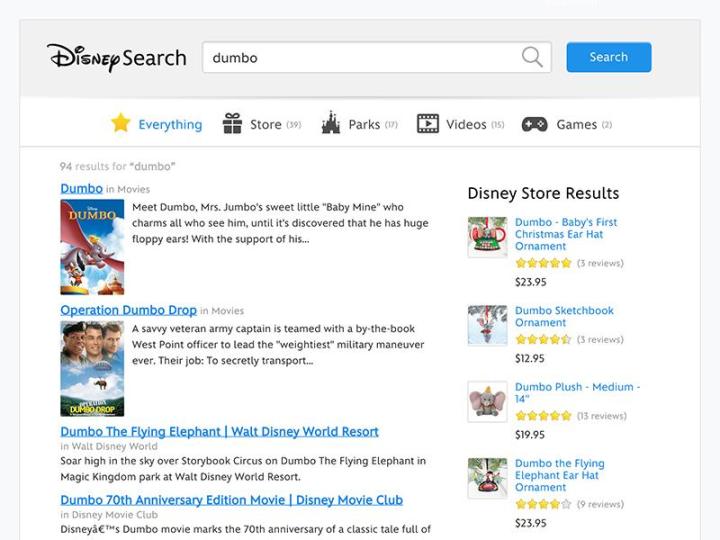
Last month Google stepped up its anti-piracy measures by downranking sites hosting content without permission and promoting legal download sources for search queries instead (so a search for the title of a film would turn up a link to Google Play first, for example) — the company has been consistently pressured by international media corporations and governments around the world to do more to fight piracy.
Now it looks like Disney wants to go further, with a patent for an “online content ranking system based on authenticity metric values for Web elements” — in other words, Disney would decide which sites were authentic and which weren’t. The filing says that “undesirable search results, such as results referencing piracy websites” would be filtered out.
The majority of today’s search engines judge a site’s value by its popularity, but that can be unfairly gamed. “For example, a manipulated page for unauthorized sales of drugs, movies, etc. might be able to obtain a high popularity rating, but what the typical user will want to see is a more authentic page,” says Disney in the patent documentation, as TorrentFreak reports.
As Google knows only too well, trying to index everything on the Web and then present it in a way that’s fair and sensible is no easy task. We don’t know whether Disney plans to implement the idea on its own site or launch a Google alternative, but it looks like finding pirated material is going to get more difficult in the future.


